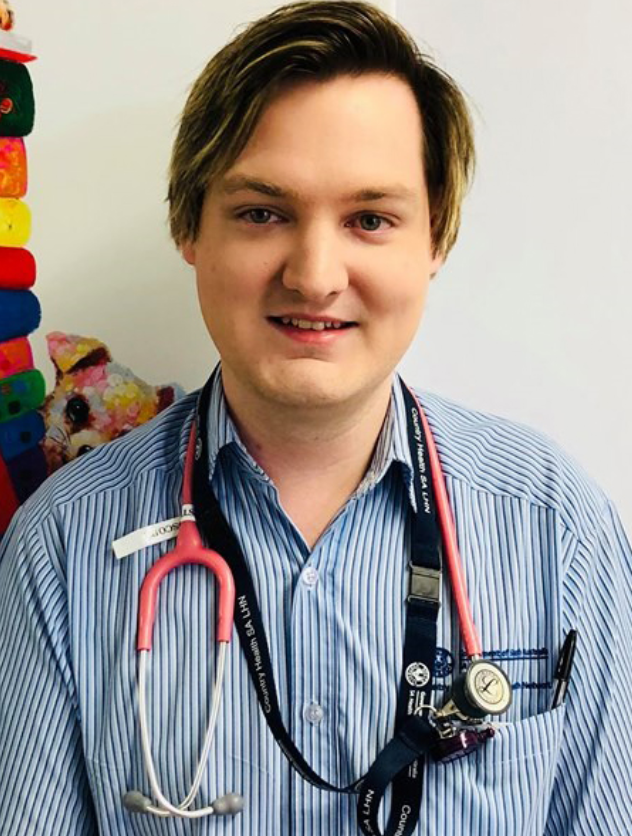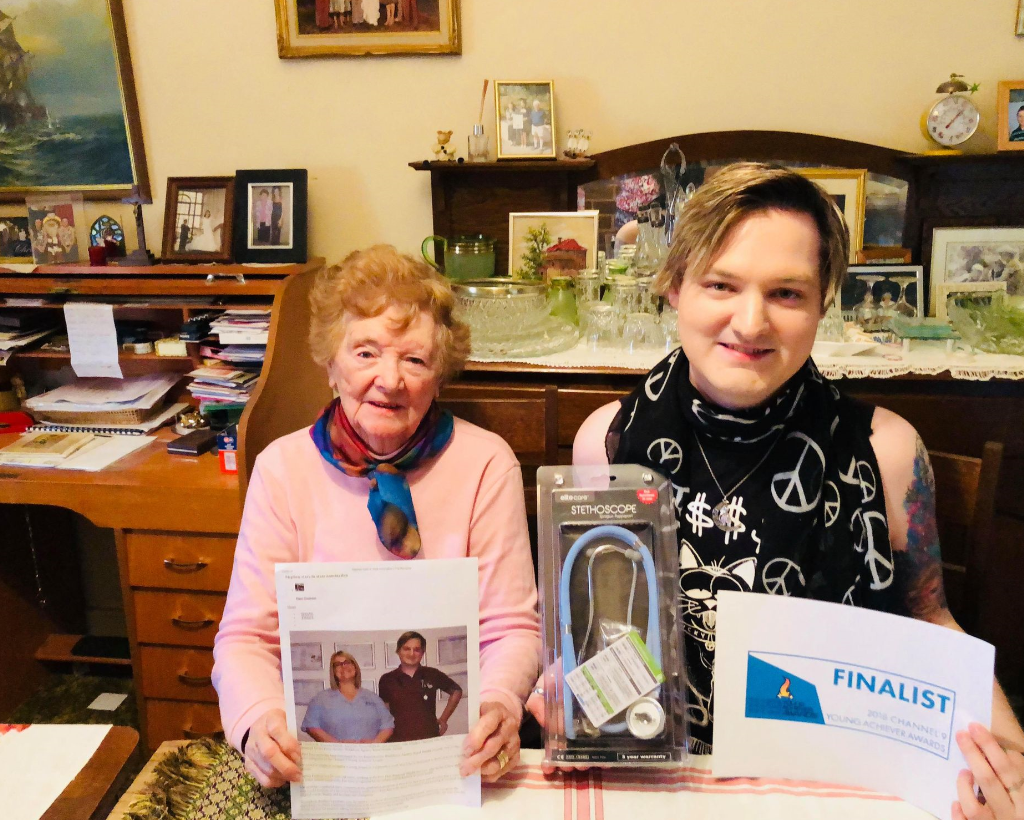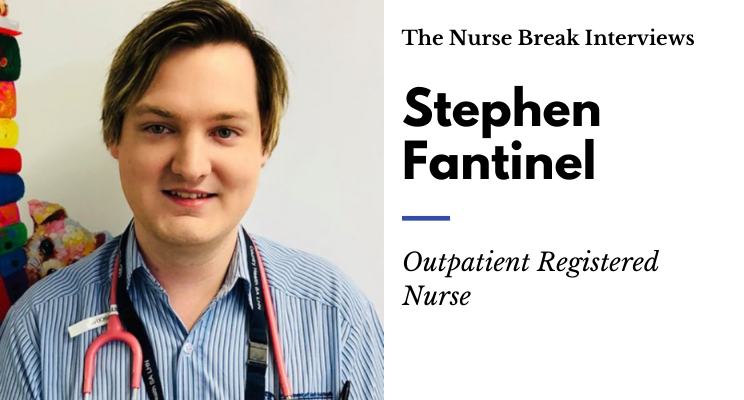Table of Contents
Who Are You, Where Did You Come From and Why Are You Here?
My name is Stephen Fantinel, and I am a registered nurse who currently works in country South Australia in the public health system.

Although I did all of my training and placements at the University of South Australia and metropolitan hospitals across Adelaide respectively I could not resist my country upbringing – so decided to apply predominately for rural/country employment in the 2017 Transition to Professional Practice Program (try saying that one 5x fast!) and was successful in gaining a graduate nurse position back in my hometown. Working in the country has provided me with such valuable insight and experiences in nursing that I do not believe I could have acquired in such a short amount of time in a metropolitan area.
I have worked across the emergency department (which used to run as a GP led service delivery model and is now staffed with locums on site), both the medical and surgical wards, a 15-week placement in a smaller outback hospital and earlier this year I accepted the role of project officer tasked with building and developing our new nurse-led outpatient clinic – which recently celebrated it’s one year anniversary in September. All this across the space of four years.
Thanks to the experience I gained across my grad year I was nominated for a “Rural Health Award” at the South Australian Young Achiever Awards in 2018 and ended up as a finalist. It was an incredible experience, and I was inspired by some of the people I met at the awards ceremony who were passionate about health and service deliveries in rural and outback communities of South Australia. It was also great having my grandmother at the awards ceremony, as she is a retired nurse who continues to inspire me in my own day-to-day nursing thanks to her background and experience working in the country too.
These days, aside from building up and promoting our new nurse-led outpatient clinic, I co-manage the Medication Safety portfolio at my hospital and have developed the monthly newsletter for our country region with education, updates and interactive questions for all clinical staff. Exciting times! But where has the time gone? I feel ancient already.

What is an outpatient clinic?
Imagine you’re an otherwise fit, healthy and ambulant adult (unless you’re a nurse where your daily beverage is caffeine-based, a trip to the bathroom on shift is a rare luxury and you can’t for the life of you figure out where that beeping noise is coming from…) and you, unfortunately, get sick with some inconvenient illness that would normally have you admitted to hospital for some intravenous antibiotics.
Probably onto the ward you work on if you are based in the country. It can be a frustrating and anxiety-driven experience, because yeah you may not feel 100%, but if only there was some way to have your IVAB administered without having to be admitted to a ward where you will also be awoken at various hours for observations, subjected to a blood pressure cuff that drives you insane and making small talk because even when you’re sick, damn it you were raised to engage with small talk and awkward silences are uncomfortable. Ahem…
Enter the outpatient clinic option. A vital substitute for those who are otherwise clinically stable, have access to transport and do not necessarily require hospital admission or the added stress of having a nurse/clinician coming to your home to administer medication when all you want is your own space and privacy while you recover.
Outpatient clinics are fast becoming the way of the future in our modern-day and ever-changing health setting. Depending on the type of clinic & where they are based mostly are run with trained nurses taking charge (what we do best, let’s be honest) and organising a patient’s episode of care. These nurses all have varied but appropriate clinical backgrounds and experience with patient assessments, and are usually quite adept in working in a largely autonomous clinic environment.
The crux of an outpatient clinic is to bypass preventable hospital admissions, which helps keep the hospital budgets in check and the ward managers and discharge coordinators from losing their minds, and these clinics work with and liaise alongside the medical officers (be it from an emergency department, ward or GP setting) and ensure their reviews are followed just as they would if they were admitted to the hospital or a community patient.
In our changing health care system, particularly after a little known virus called Covid-19 entered the public domain and became more famous than Cher (or Taylor Swift, if you’re a millennial), we must explore every option at getting patients the services and best treatment options available. Outpatient clinics have become that option.
Every clinical stream you can think of from intravenous antibiotics therapy to wound dressings/reviews to the removal of sutures to elective ECG’s to one-off injections (hello ADT Booster!) are all covered in these outpatient clinics, and this is only the tip of the proverbial iceberg.
I am quite fortunate with the outpatient clinic I work in because we also have a “Triage 5 diversion” option set-up, which allows for patients that have scored a T5 on their Emergency Department forms to bypass that area and come to our workspace for a nurse review (and a potential doctor consultation if required). This can make a huge difference to the ED staff when they are under the pump, which is 99.99% of their day, and ensures everyone is seen and usually in a timely manner as well. Win-win all round.

What are the main types of patients you see in the outpatient clinics?
I see anyone and everyone, 7 days a week from 7 am to 9:30 pm (on either an early or late shift). These patients range from T5 diversions from the ED (anything from a chronic issue to an otherwise clinically stable patient) to some juicy wounds (surgically induced – bet our parent’s generation regret hanging out in the sun as much as they did now!) to everyday accidents like dog bites or clumsy skin tears.
I take out hundreds of sutures and staples a week, have given more injections than I can count (nothing beats that feeling of pride when a patient looks at you in total surprise and says “I didn’t even feel that!”) and of course the intravenous antibiotics therapy. There is a referral process for our outpatient clinic, like every area of health and nursing (we are not free of paperwork sadly), and patients have to be easily contactable and have access to reliable transport.
Initially, I thought a barrier to an outpatient clinic may be that people wouldn’t want to come up to our clinic at the hospital for wound dressings or IVAB – especially as we have a terrific crew of home nurses that clock more kilometres than Usain Bolt at the Olympics. However, people do want to come up. Some say “I really don’t want people in the house when I’m sick” or “eh, I have a booked appointment which runs to time and if there are any issues a doctor isn’t too hard to get a hold of if there are any issues”. The great thing about our clinic is the doctors usually are quite readily available for a patient review – it helps if you lure them over with chocolate as well!
My role is ever-changing, especially as our clinic is new and we spent the better part of a year building it up and making sure people in the health system and the wider community were aware of its existence (not even Covid-19 could stop our momentum completely, just side-tracked it a little). I dress people’s wounds, take their sutures out, administer their injections and antibiotics and everything in between with an explanation as to what I’m doing and giving patients feedback on the recovery and healing process – which by and large keeps them positive and part of their own care.
We hand out a plethora of consumer feedback surveys to monitor for our own clinic functioning and ensure our patients’ are included in their own care and treatment. No one wants to be sick or injured, and if I can make someone’s day that little bit better or brighter by making them laugh/smile/kept in the know of how everything is going with their ailment then it’s part and parcel of why I entered nursing in the first place.
I have met many people from all ages and walks of life from around my town, and indeed the surrounding region too, and not everyone can be fortunate enough to work in the profession we do that enables this close positive interaction with so many people the way nursing does.
What are the most rewarding parts of your area of work and where do you see yourself in a few years?
Honestly, I love the continuity of care I am afforded by working in an outpatient clinic at the hospital. You are autonomous in your environment, no one is interrupting you for the red DDA keys every 5 minutes and you can spend a good chunk of time interacting with your patients and thoroughly assessing them.
Nothing beats that feeling of watching a juicy raw wound finally start to decrease in size and muck, knowing all the while you are partly responsible for healing it up and getting this patient back on track. I enjoy this other side of nursing because even though our days do get busy and there is ever-growing paperwork in abundance, it’s different from the ward or emergency nursing because you have that little bit more time and privacy to really interact with some of your patients and get them back to life again.
I am currently awaiting the green light to my recently submitted clinical reclassification, and will also do some training in the After Hours Coordinator position of my hospital. I have high hopes for our recently developed outpatient clinic at the Hospital and I see a lot of potential for other services in its walls. I urge anyone who has an interest in outpatient nursing to check it out, and better yet if you would like to experience nursing in a country/rural setting look around at some the jobs being offered.
The country vibe is so different from the city, and you really do get some valuable experience and mentoring as well! I highly recommend both areas to anyone coming out of the university sector and looking for jobs to kick-start their career or older battle-axe nurses that just need a change and/or a David Bowie type reinvention in their lives.
Special thanks must go out to Jackson and the team at the Nurse Break website for giving all us nurses – seasoned and newbies – both a voice and platform to share our journeys, experiences and advice around the industry. We have all had a hell of a year thanks to this virus, and this is not a profession that just anyone can do. It takes a lot to be a nurse and we should all be very proud of ourselves for putting ourselves out there each day in the interest of helping others and making them feel better. Thanks all for reading!
Read our other primary health care, outpatient and community related nursing blogs HERE
Looking for our next guest! Are you / do you know of a healthcare worker or student working in Australia, who would like to write about your/thier career, area of speciality, unique experiences or other nursing/midwifery/allied health related content? Please email us at hello@thenursebreak.org to discuss further or check out the Write for TNB Info Page on the website.






Thank you. One of my favourite blog posts here.